Berhan Tabih, a seasoned tattoo artist born in 1992 in Manisa, Turkey, has become a prominent figure in the global tattoo community. His journey into the world of art began with a passion for motorcycles and cars, drawing inspiration that eventually led him to explore the intricate art of tattooing.
With nearly a decade of experience in the tattoo industry, Berhan Tabih has earned international recognition for his exceptional skills and artistic vision. He stands as a proud recipient of numerous awards from prestigious international conventions, showcasing his mastery in blending styles such as black and grey realism, geometry, and graphics. His ability to weave captivating narratives on the canvas of skin has set him apart, making him a sought-after artist on the global stage.
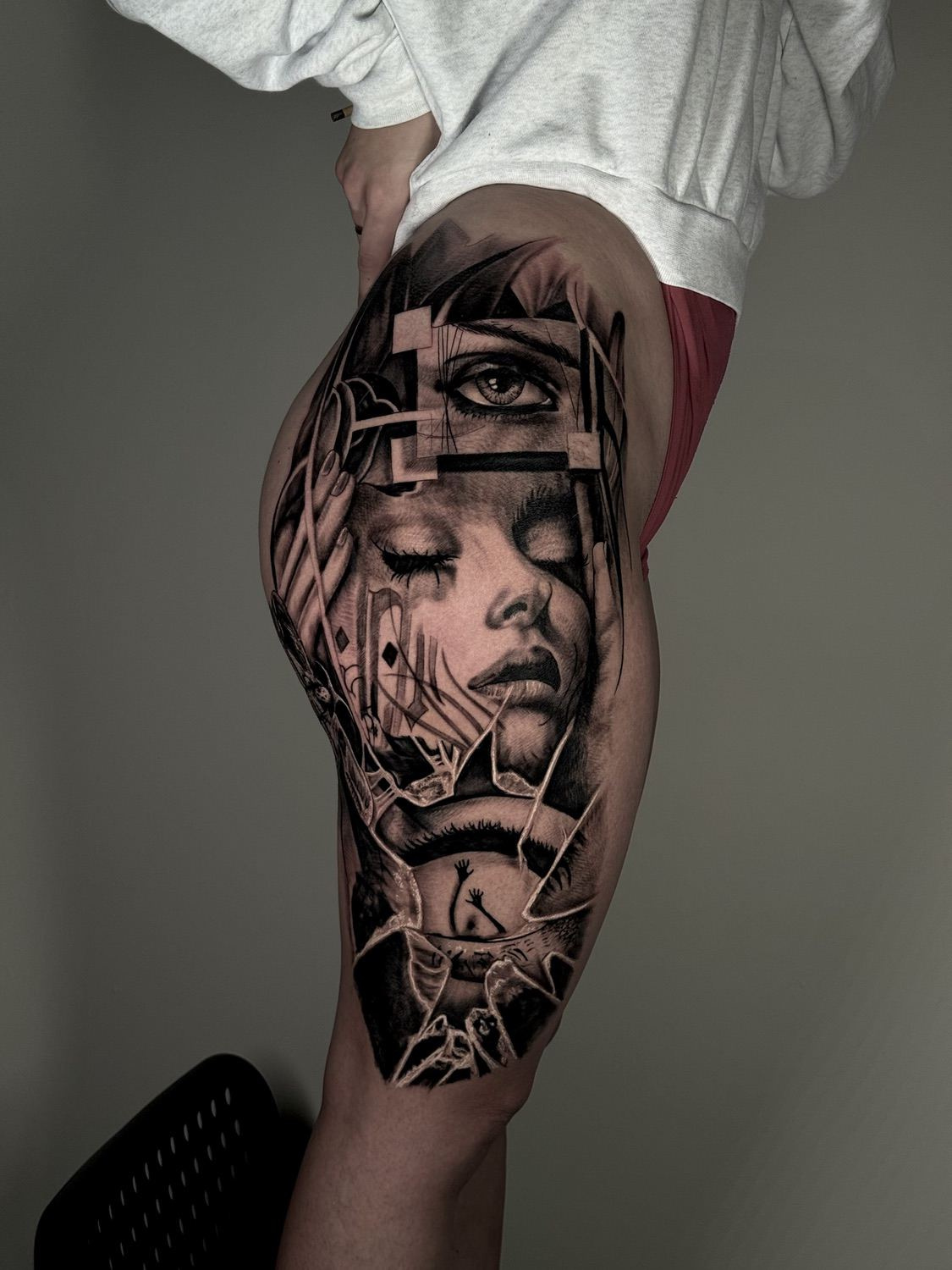
In an exclusive interview, Berhan provides valuable insights into his artistic process, shedding light on the creative techniques he employs to bring his unique designs to life. He discusses the evolving tattoo scene in Turkey, highlighting the cultural shifts and growing appreciation for this form of art within the country.
Let's start with our traditional questions: tell us a bit about yourself. Where are you from, what were you doing before tattooing, and how did your career actually begin?
- Hello! I am Berhan Tabih, born in Manisa, Turkey, in 1992. At a young age, like every boy, I was fascinated with motorcycles and cars, and I still am. That's how I started drawing. Now it has been almost 10 years of a career in the tattoo industry. I am also into sports, and I have been doing sports for as long as I can remember. I studied physical education and sports teaching at the university.
As a tattoo artist from Turkey, can you tell us about the tattoo scene in your homeland?
- There is a huge difference between where I started and where I am now. Great artists have grown up, and they are performing very high-quality tattoos. Turkey has a very young population, and they are very interested in getting tattooed. Some of them have a great interest in becoming tattoo artists as well as getting them. I hope they will grow up well and contribute to this sector as great artists in the future.
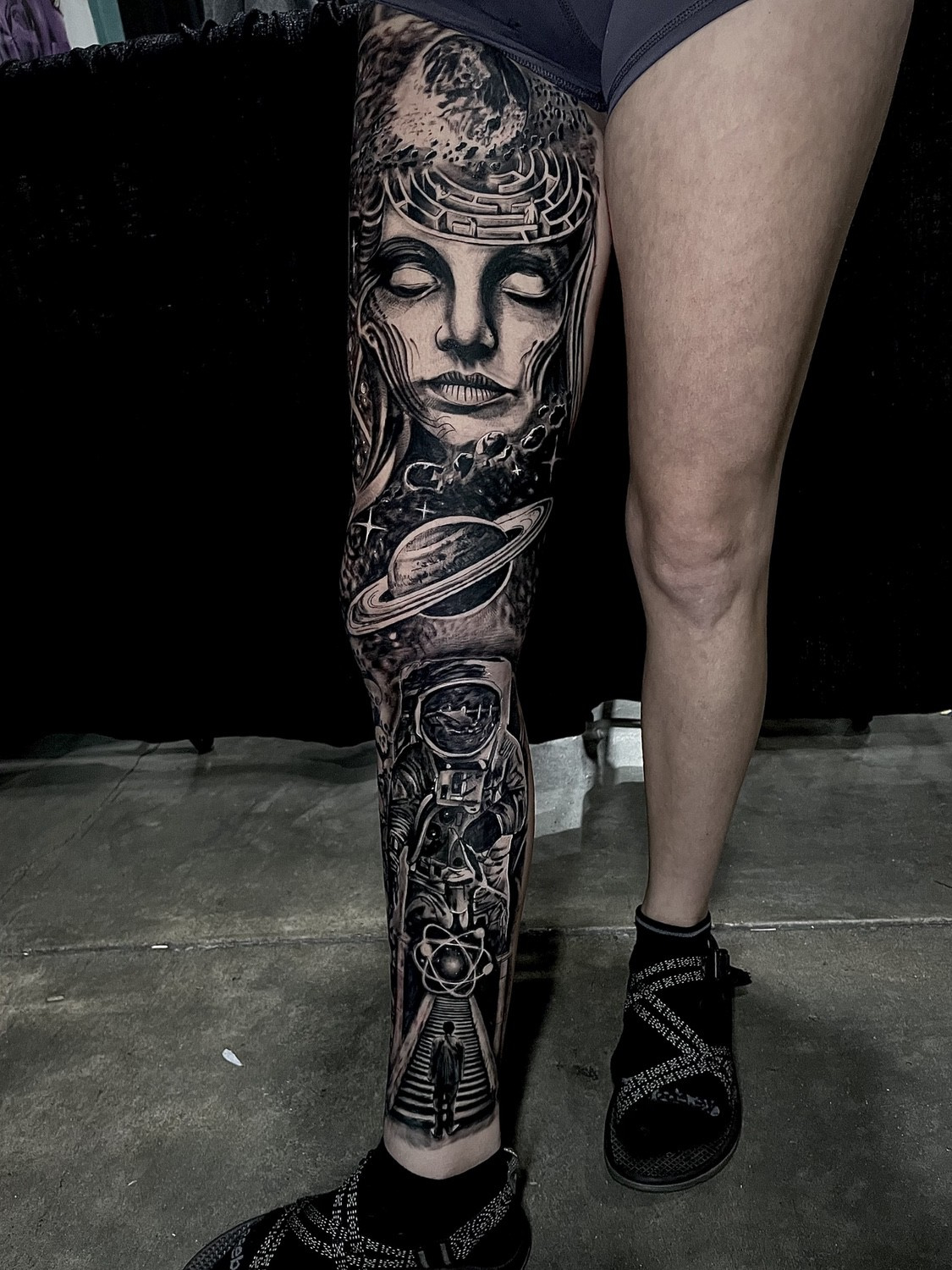
For you, is tattooing an art, a job, or something else?
- Actually, I have been asking myself this question since the day I started my career. I don't think there is a single answer, though. I say that even if I did another job, I would still want to tattoo because I have been interested in art since my childhood, as I said. There were times when I tattooed hundreds of times without getting paid just because I liked the design. Of course, afterward, as I made a career, I couldn't find the opportunity to do it even if I wanted to. Especially after we get to a good level in our career, we see a lot of demand; people want to carry our artwork, and after all, you need to get paid for what you do to make a living, but I never let money be my motivation.
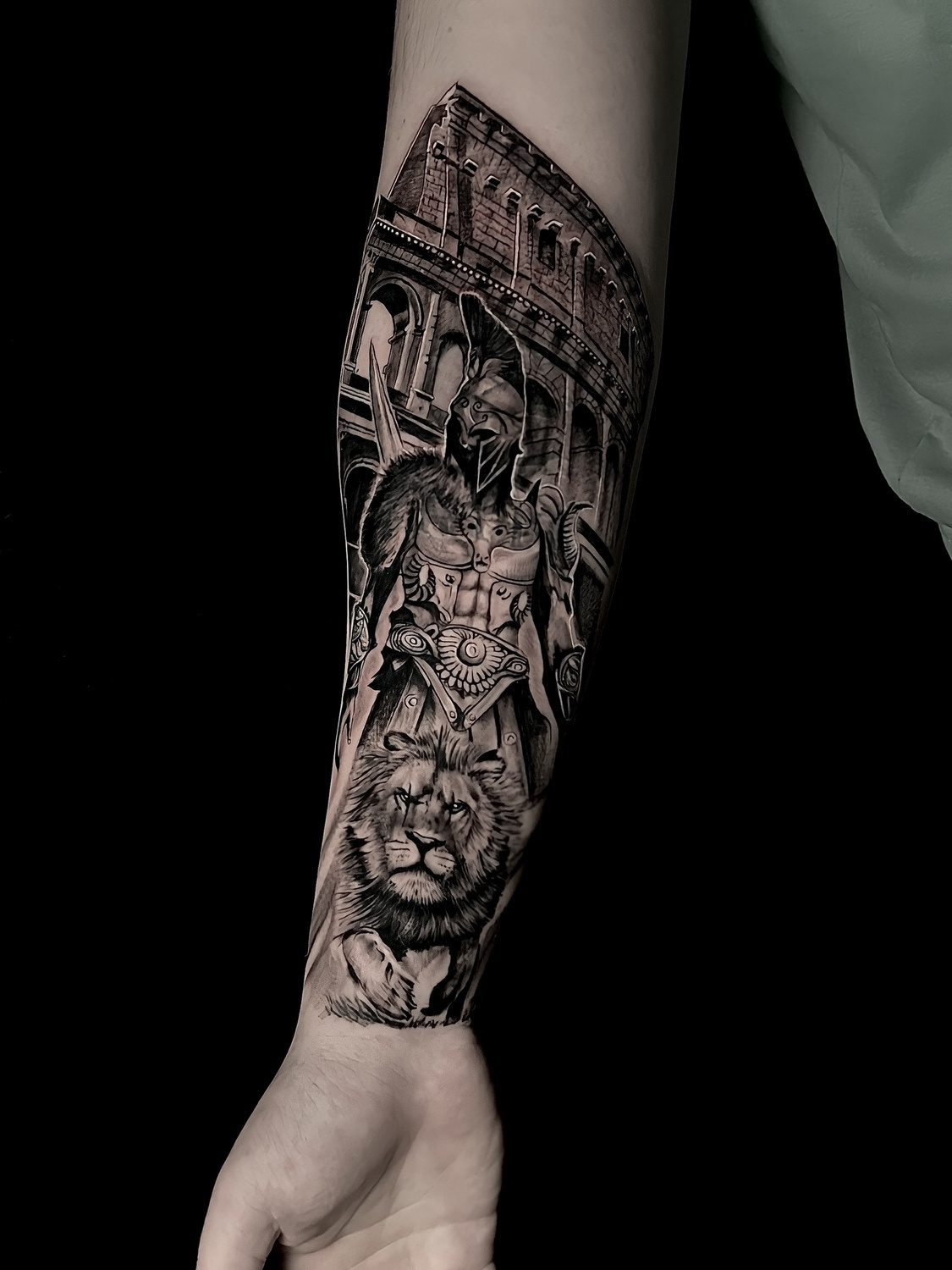
When I first started tattooing, I did tattoos that I didn't want to do in order to make money. But now I only do work that I enjoy, so I can do my art the way I want and make money at the same time. One of the beautiful parts of our work is this, I guess, which you can actually enjoy while you are working!
In your works, you combine several styles at once: black and gray realism, geometry, and graphics. Why this particular combination? What attracts you the most to black and grey tattooing?
- My interest in black and gray style stems from the fact that I have been doing charcoal since I was young. I find both very similar to each other, and I feel very happy when I work. I have also done colored work; in fact, I think I am good at it, but, as I said, I feel more comfortable with black and gray pieces. I like to try different styles; I never say that I can only do one thing; sometimes I like to combine it with symbols, sometimes with letters; and lately, I like to work in composition, and I am interested in works with interconnected stories.
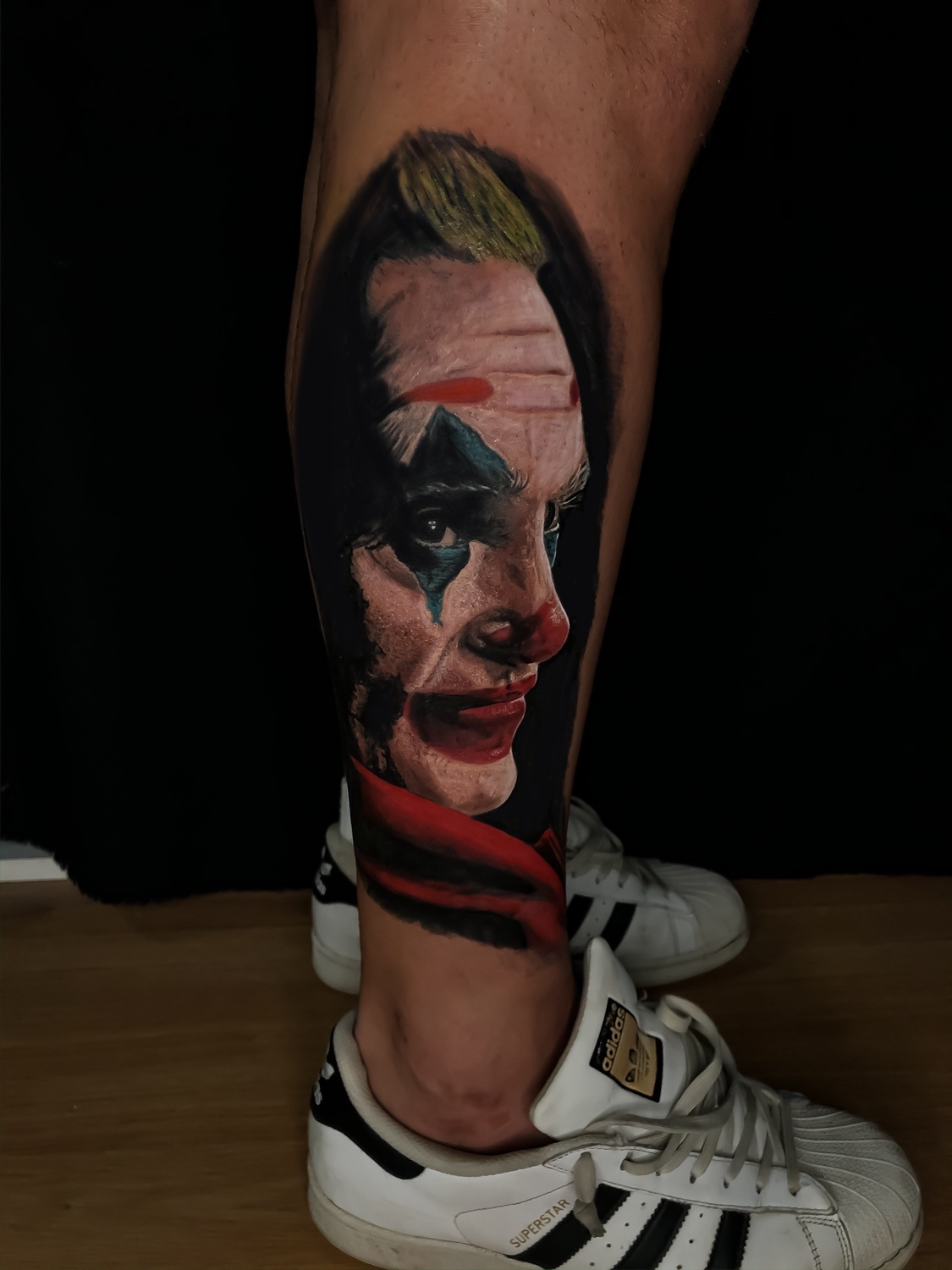
What designs are your favorites? How do your projects come to life?
- I can't specifically say that one of my pieces is better than the others; they all have a different story, and they all involve a lot of hard work. I am never selfish when starting a project; I try to understand the person who will carry the tattoo and work to prepare a design that suits his soul. Designs with a story are the most enjoyable to work with. Working with clients who respect my art makes the project much more fluid.
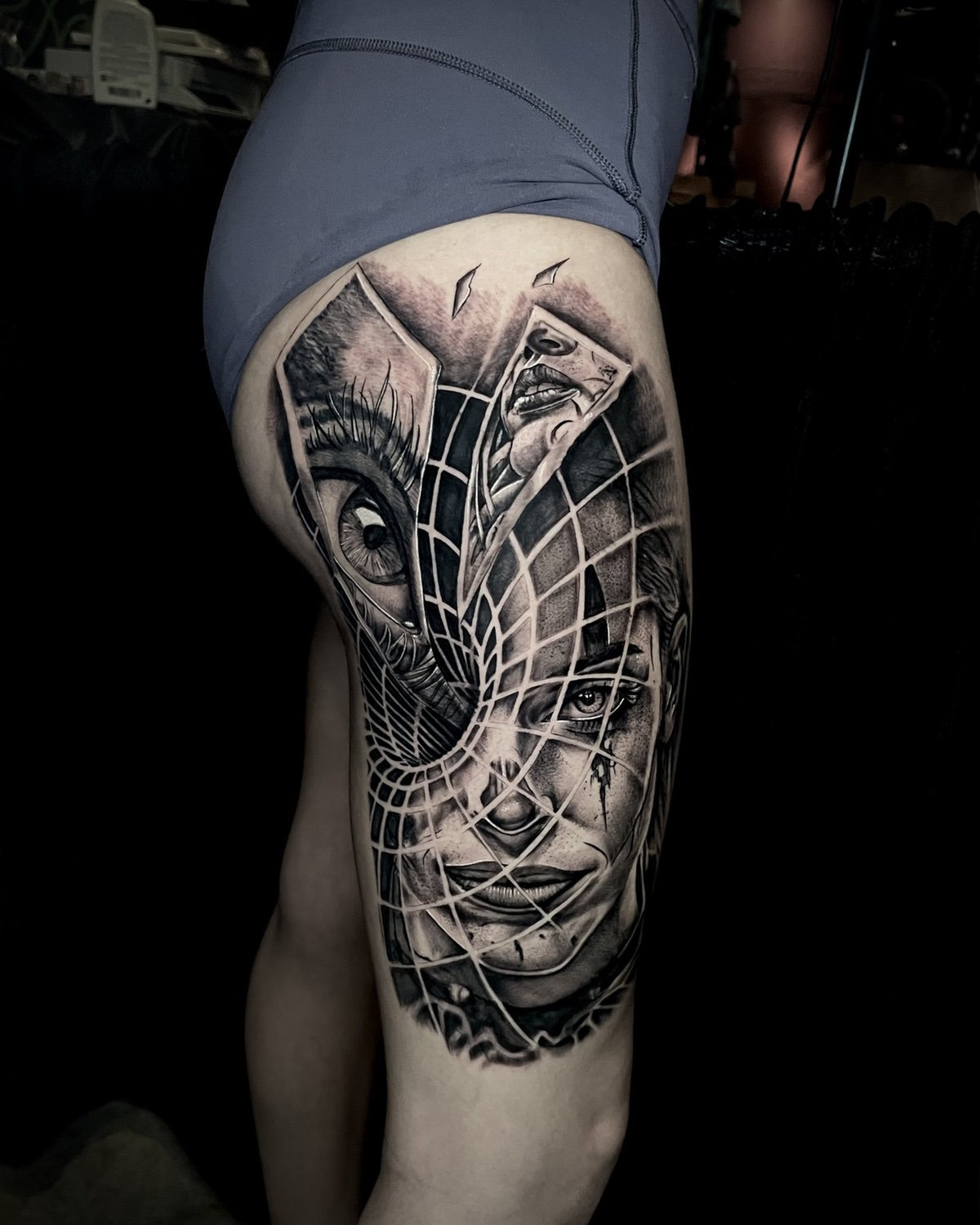
What is the most important aspect of tattooing for you?
- I think the best part of my profession is human interaction. I meet people of all ages, cultures, and countries by tattooing them. I think there are very few professions in which you can do this. I feel very lucky about it.
Do you have favorite tattoos, clients, projects, or perhaps some unusual stories in your career?
- The most emotional things are when people lose their loved ones and want to have a memory of them. When I do a tattoo of a deceased loved one, I feel a little bit of stress because I want it to be perfect. The most special moment here is the first time the customer sees the tattoo; they usually can't hold back their tears, and sometimes a few tears flow from me too, even though I try to hold myself back.
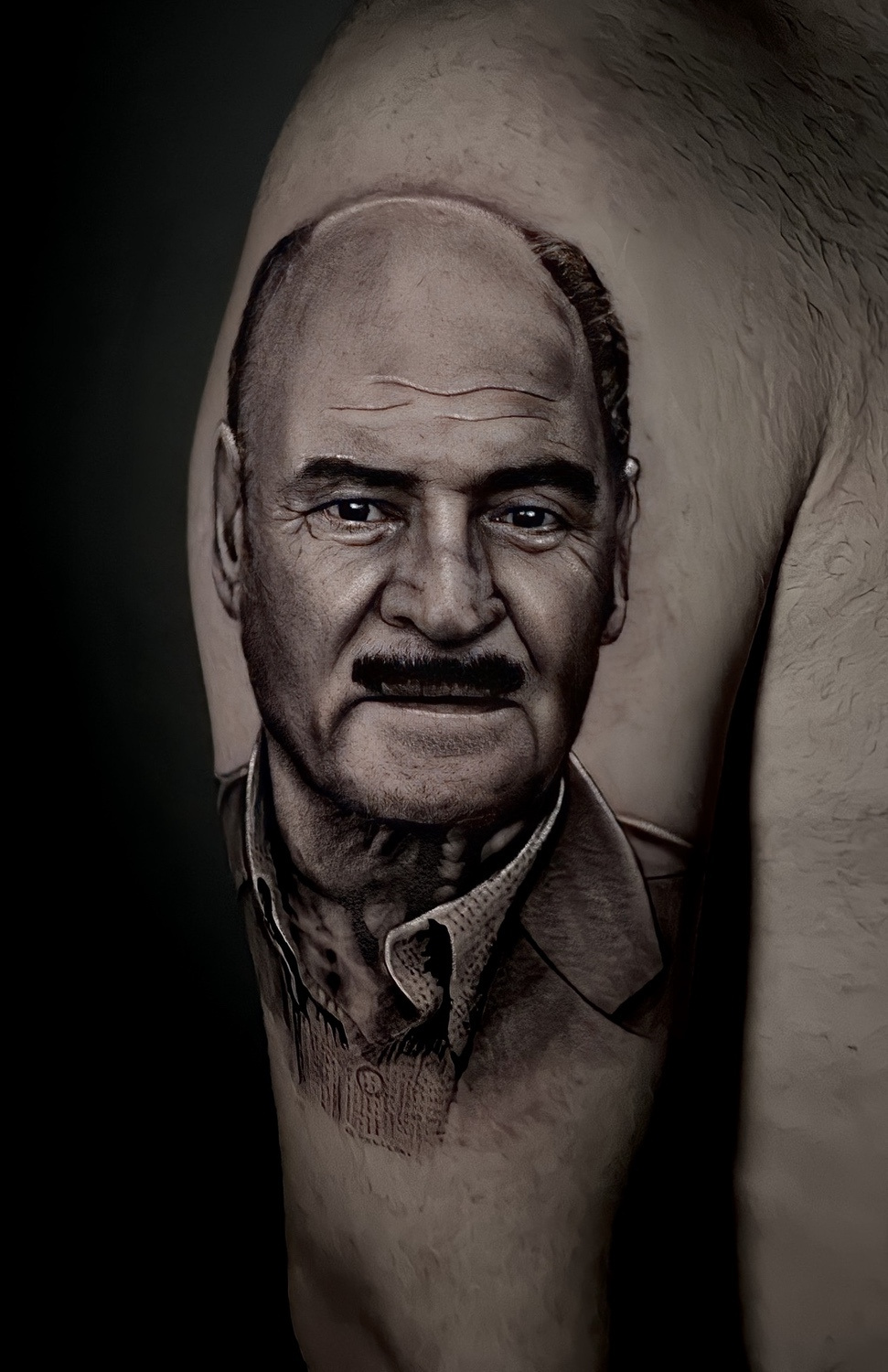
Do you travel a lot? Where have you been already, and where do you feel most comfortable?
- I couldn't step out of my studio because I was working intensively, but in recent years, I have tattooed in many cities in my country and in the USA. I love conventions where there is a lot of competition; it is exciting to be there and tattoo for an award, and I feel very happy and excited at those moments.
How many awards do you have? And what convention was the most significant for you?
- I have participated in many conventions, and I have won 20 awards in total, including Best of Show. Each convention was very enjoyable for me, and I feel that I belong in that competitive environment. The convention in Columbus, Georgia, USA, where I received my first award, was a special moment for me. Again, I was invited to be on the jury at the convention held in Knoxville, Tennessee, USA, which was a very nice experience for me.
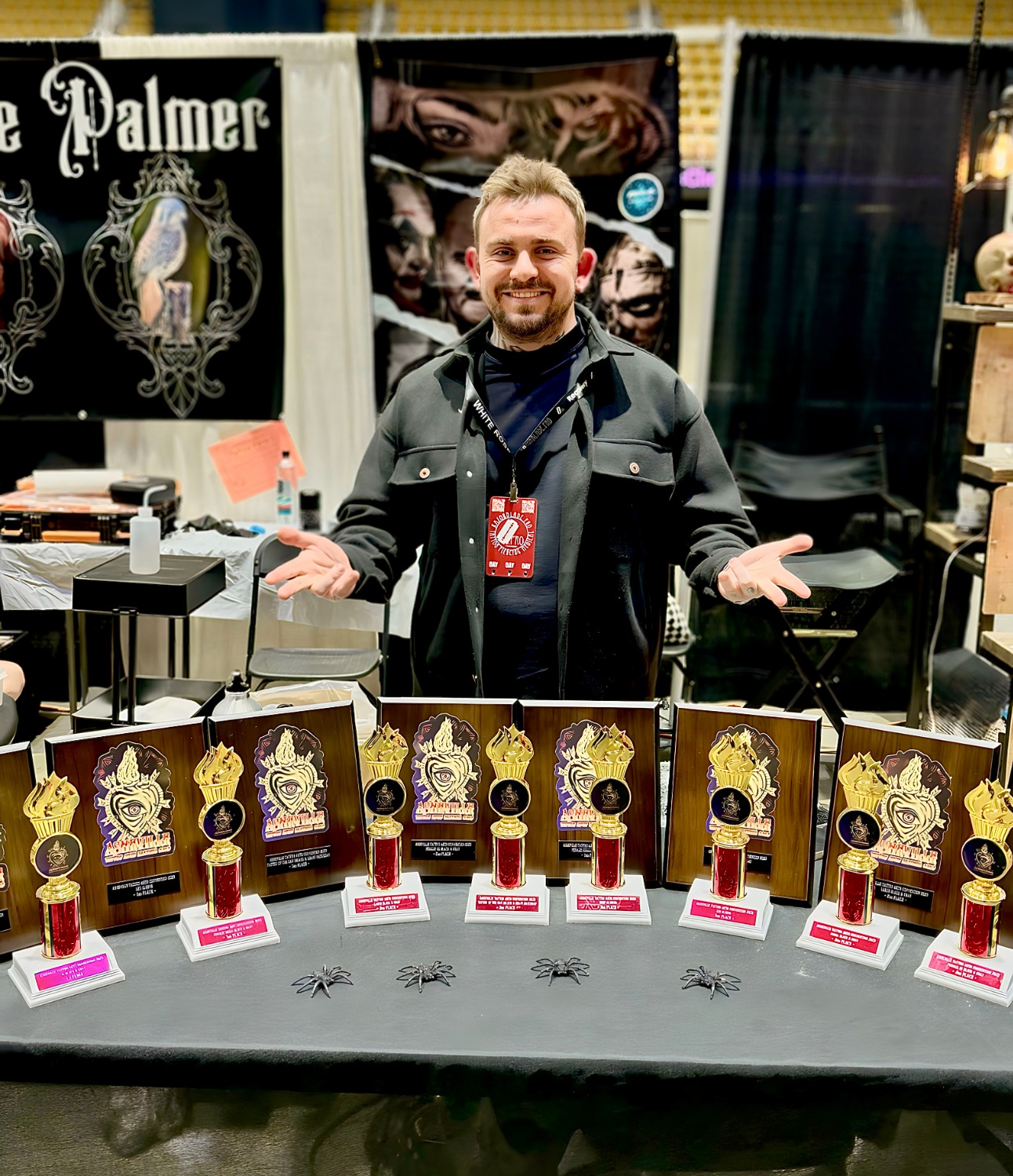
Many artists, when answering questions about sponsorship and proTeams, talk about their efforts to influence this part of the industry. You collaborate with A’SORB-IT, so tell us what sponsorship means to you?
- Especially after the conventions and 20 awards, we talked to many brands for collaboration; a'sorb-it, which supports me now, is one of them. There are a few more companies that I am currently in touch with, and in the coming days, the number of sponsors will increase, I believe, and I will take part in a pro-team eventually. It is nice to be supported by the appreciation of your work, and it is very valuable to have such sponsors supporting your work in every field.
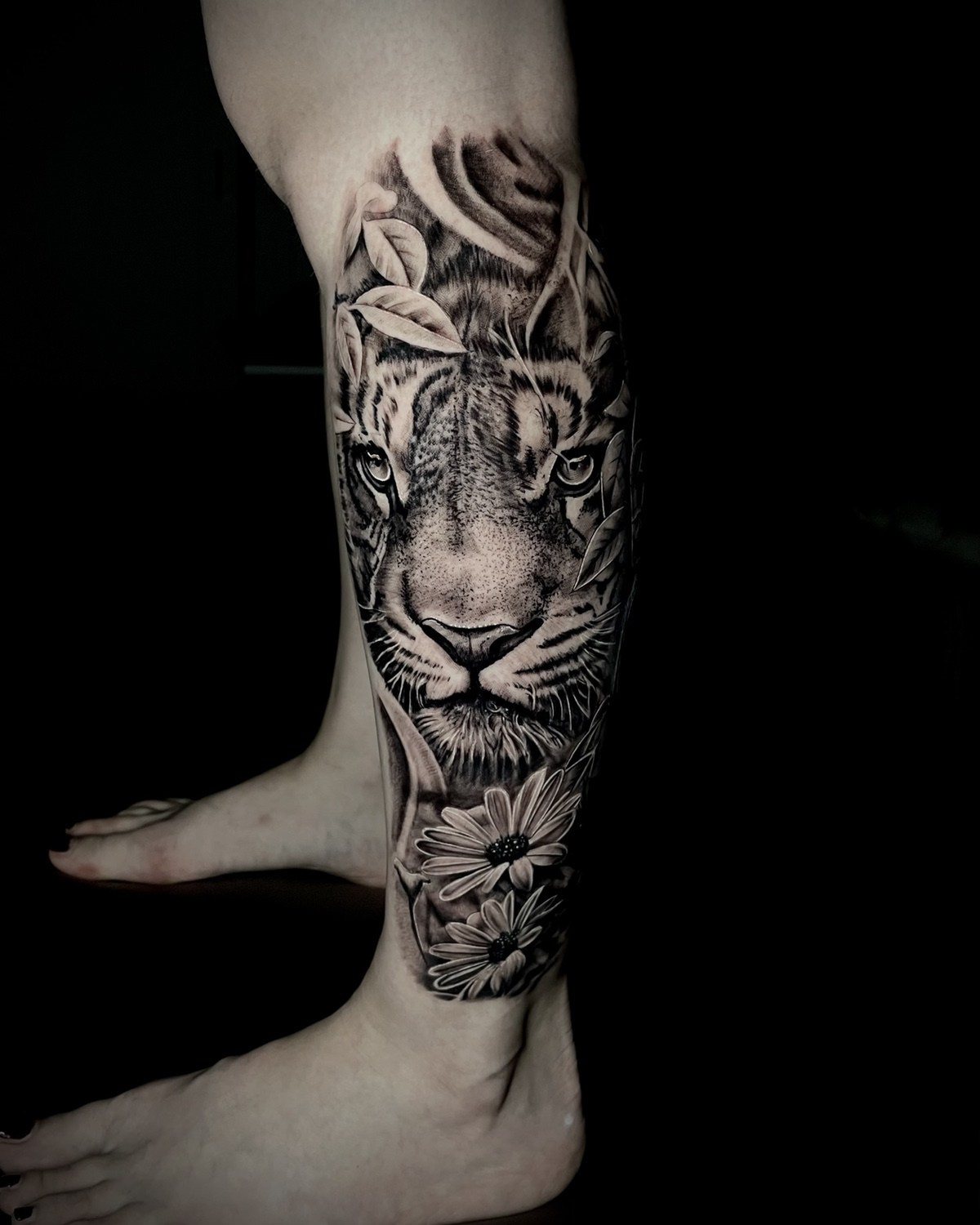
How do you assess your popularity? And in your opinion, how can it be measured?
- Today, social media is very important for visibility. Even if someone doesn't know you at all, when they follow you, it contributes to your popularity. The popularity I like is a bit more old-school. I like it more when both the organizers and other artists at the industrial events I attend are interested in and recognize my work and the artist behind it, me. It is more rewarding when you are mentioned in a new city or a new country, you are known there, and your work is appreciated. I like communicating with people face-to-face more than on social media; that's what I meant by old-school.
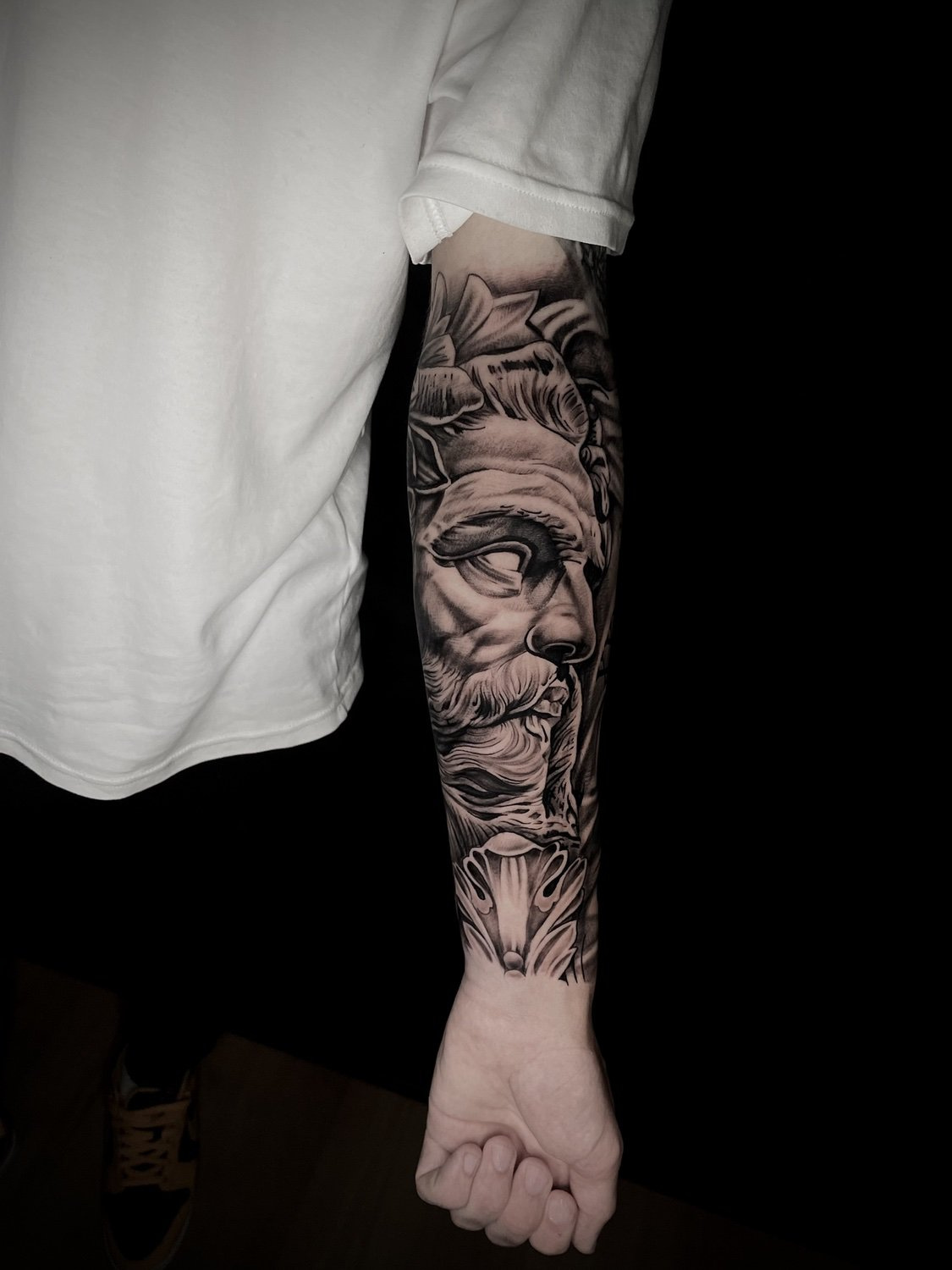
Many successful tattoo artists strive to share their acquired experience. Tell us if you have any such activities in your life and for whom they are.
- I am currently planning workshops. Next year, I will be teaching in many places, which is a new and exciting process for me. I tried to train my assistants; I have always liked to share information. Sometimes there are people who I don't know at all but who send me messages and ask questions just because they are curious, and I try to answer and help them all.
What is the most important thing in your career as a tattoo artist? What goals do you set for yourself?
- The most important thing is, of course, to get a financial and moral reward for your art. I am very lucky in this regard. My career plans include collaborations with big companies in other fields, but my main goal is to visit every country in the world and tattoo at least one person in each of them. I really want to be the first tattoo artist to do this.
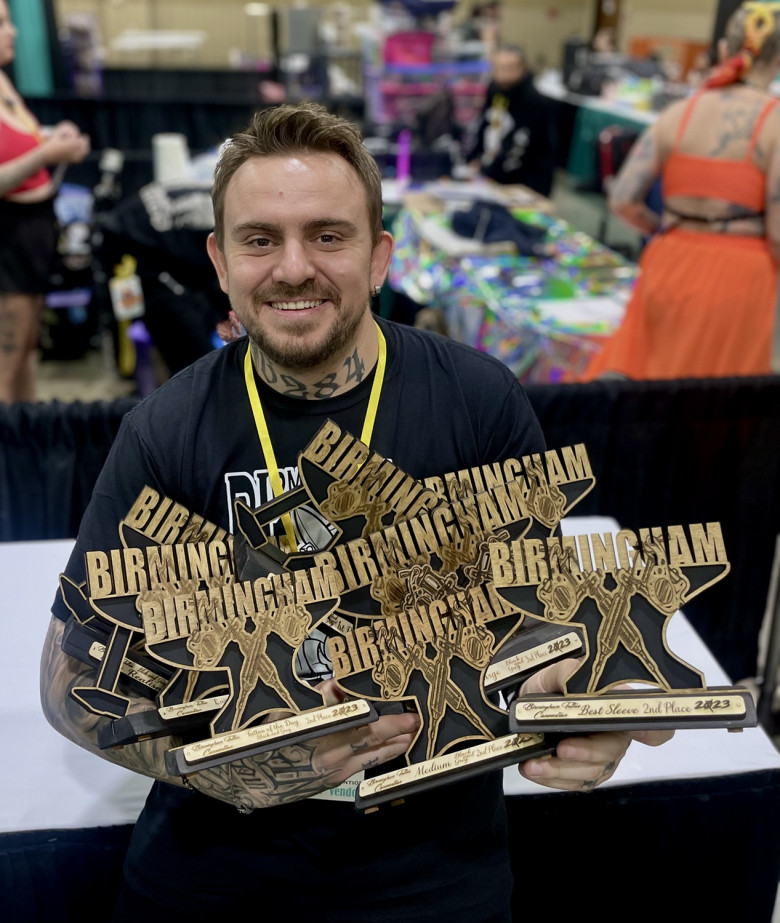
Share your creative plans for the near future.
- I've been in the US recently, and with the experience I've gained here, I want to advance my art by collaborating with the most creative and diverse fields.
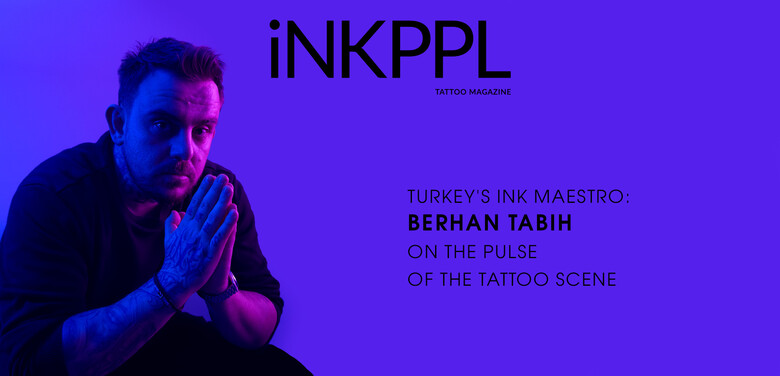

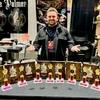
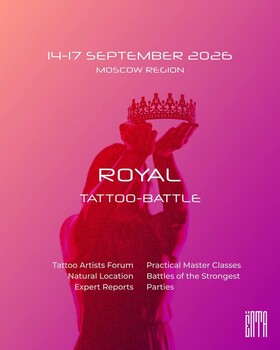
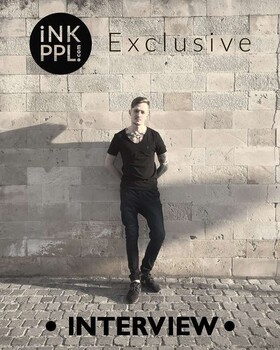
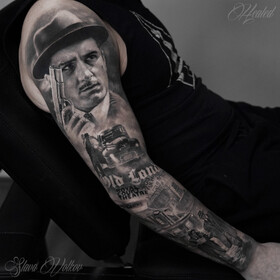
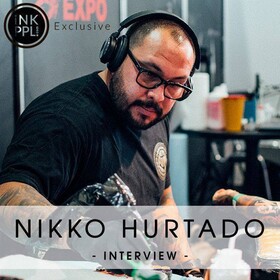
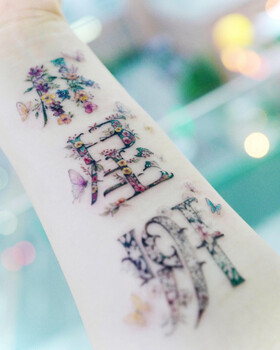
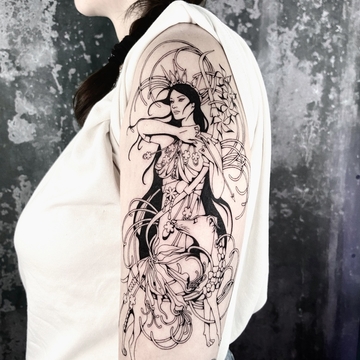
Comments (0)